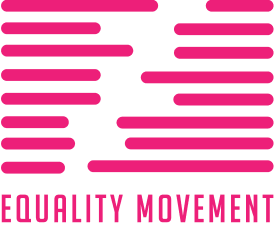In the coming days, it is expected that the Kyrgyz government will adopt the legislative package, collectively known as the “Russian law”, which includes legal amendments to the Law on Non-Commercial Organizations and amendments to the Criminal Code of Kyrgyz Republic.[1] The legislative amendment was introduced with the first hearings without the appropriate engagement of the civil society and it introduces criminal responsibility for common civic activism, as well as introduces the discriminatory treatment of the NGOs and charity organizations, enabling the government to interfere in their work and even shut down the organizations. This poses a substantial risk of shutting down free civil society in Kyrgyzstan amid already existing repressive laws, by endangering the freedom of speech, and freedom of association, as well as hampering the normal work of critical media, civil society, and civic activists.
According to the analysis of the Kyrgyz lawyers, civil society, and other experts, the amendment package is about 90% identical to the 2012 so-called “Agent law” introduced in Russia (which was judged as contradicting the international principles of law in the decision of the ECHR in June 2022),[2] and therefore contradicts the international norms of law (including Articles 20 of the Universal Declaration of Human Rights, Article 11 of the European Convention of Human Rights, Article 22 of the International Pact on Civil and Political Rights. The legislative amendment in Kyrgyzstan was heavily criticized in OSCE/ODIHR and Venice Commission reports, which reiterated that the adoption of such legal amendments will cause a shutdown of independent media, and civil society, and will introduce total control of the government over the civil society at large.
In the past few months, the repressions against the Kyrgyz civil society – media, and the NGOs has substantially increased, including criminal persecution, extraditions, multi-million court cases, smear campaigns, and cyberbullying by fake social media accounts, as well as organized protests against the free civil society, where threats of violence were voiced openly, without appropriate intervention by the police. In the past year alone, the rating of Reporters without Borders, Kyrgyzstan has dropped by 50 points in a single year, taking 122th spot among 180 countries.
OSCE/ODIHR and Venice Commission have already directly expressed their concern over the initiated legal amendments, along with 8 international organizations – International Partnership for Human Rights, Norwegian Helsinki Committee, Helsinki Foundation for Human Rights, Front Line Defenders, Freedom Now, Human Rights Watch, International Federation for Human Rights (FIDH), World Organization Against Torture, all of which recognized the amendments as dangerous for the civil society of Kyrgyzstan.
We, the civil society of Georgia – media, NGOs, and activists, personally know the dangers and risks of such shrinking of the space for civil society, struggling through similar developments since February 2023 when a similar bill was introduced in Georgia. It is clear that the challenges facing our countries follow the same pattern and thus must be answered with joint efforts, to maintain hard-won independence, democracy, and human rights in our countries at the time, where each island of freedom represents substantial hope for human rights activists in the region. We call upon our international partners – international and national organizations, media, organizations, and activists, to join in supporting Kyrgyz media and civil society through among others, spreading the information and mobilizing the international community against the deterioration of the human rights violations and against repressive laws in Kyrgyzstan, as prevention of such developments in other countries, including in Georgia.
Signed by:
▪ Caucasus Open Space (COS)
▪ Democracy Research Institute (DRI)
▪ Institute for Development of Freedom of Information (IDFI)
▪ Franklin Club
▪ iFact (Investigative Journalists’ Team)
▪ Georgian Charter of Journalistic Ethics
▪ SOVLAB (Soviet Past Research Laboratory)
▪ Georgian Society for Psychotrauma
▪ Queer Association – TEMIDA
▪ Rights Georgia
▪ Qvemo Qartli media (qvemoqartli.ge)
▪ International Society for Fair Elections and Democracy (ISFED)
▪ Femina Fund
▪ Ilia’s Legal House (Iliasi)
▪ Mtskheta-Mtianeti Regional Hub
▪ Association of Disabled Women and Mothers of Disabled Children DEA
▪ Women’s Initiatives Supporting Group (WISG)
▪ Georgian Young Lawyers’ Association (GYLA)
▪ Women’s Association Gvirila
▪ Abkhazinterkonti
▪ Media Center Kakheti
▪ Governance Monitoring Center (GMC)
▪ Women Association Acting Together
▪ Solidarity Community
▪ Georgian Civil Development Association (GCDA)
▪ Eastern European Centre for Multiparty Democracy (EECMD)
▪ Internews Georgia
▪ Media Ombudsman
▪ Georgian Democracy Initiative (GDI)
▪ Union of Democrat Meskhs
▪ Media Club
▪ Media Development Foundation (MDF)
▪ Georgian Regional Media Association (GRMA)
▪ Women’s Fund Sokhumi
▪ Journalism resource center
▪ TOK TV
▪ Meeting Place Dmanisi
▪ Student Youth Council
▪ Center for Participation and Development
▪ Dev.ge
▪ Alliance of Regional Broadcasters
▪ Sapari
▪ Women Engage for a Common Future (WECF)
▪ Publika
▪ Georgian Rural Council
▪ Open Society Georgia Foundation (OSGF)
▪ Prevention for Progress (PFP)
▪ Equality Movement
▪ Democracy Defenders
▪ Chavchavadze Center
▪ Civil Solidarity Fund
▪ EuroClub Kvareli
▪ Mtsvaneebi – the Georgian Greens
▪ Students against Russian Law
▪ Youth for Democratic Changes
▪ Civil Society Development Centre (CSDC)
▪ Media April
▪ Center for Information and Counseling on Reproductive Health – Tanadgoma
▪ Knews.ge (Kakhetis Khma)
▪ Media House – Samkhretis Karibche
▪ Kutaisi Post
▪ Akhalkalaki Business Center
▪ Aliq Media Georgia
▪ Puspussy Team
▪ Center for Social Sciences
▪ Taso Foundation
In Kyrgyz News (in Russian):
- How the legal amendments threaten all internet users, June 6/2023, Hyperlink (24KG media).
- Expert analysis on legal amendments, comparison with Russian law, and its purpose, June 5/2023, Hyperlink (Kaktus Media).
- “Violates Constitution, international commitments” – experts on legal amendments, June 5/2023, Hyperlink (Kaktus Media).
- Address of the Activists to the initiators of the legal amendments, June 2/2023, Hyperlink (Vesti Kyrgyzstan media).
- NGO coalition and media in Kyrgyzstan address Embassies of foreign countries to stop issuing visas to initiators of the legal amendments, May 30/2023, Hyperlink, (Vesti Kyrgyzstan).
[1] The bill was initiated and re-initiated multiple times since 2014 in various forms, but same content, first being introduced in 2014, May 26.
[2] “While the Kyrgyz Republic is not a Member State of the Council of Europe (hereinafter “CoE”), as a member of the European Commission for Democracy through Law of the Council of Europe (hereinafter “Venice Commission”, “VC”), CoE instruments, relevant case-law of the European Court of Human Rights (hereinafter “ECtHR”) and Venice Commission’s documents are also of relevance and may serve as useful reference documents from a comparative perspective.” – Point 14 (page 9) in the Opinion on the Rules of Procedure of the Jogorku Kenesh of the Kyrgyz Republic, published by the OSCE/ODIHR on May 24/2023. Full text available in in English here.


 ვებ-გვერდი შექმნილია RFSU-ს ფინანსური მხარდაჭერით.
ვებ-გვერდი შექმნილია RFSU-ს ფინანსური მხარდაჭერით.

